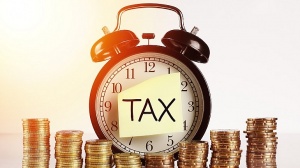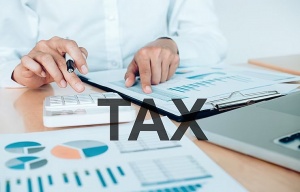Rise in consumption likely with VAT accord
The National Assembly (NA) last week, for the third time, adopted a resolution which covers a VAT decrease of 2 per cent until late June 2024 on goods and services subject to a 10 per cent rate, in order to contribute to reducing prices of goods and services to promote production and business, and generate more employment for labourers.
The government previously applied the rate from July to the end of this year, and for most of 2022.
 |
| Rise in consumption likely with VAT accord, illustration photo/ Source: freepik.com |
The VAT rate of 8 per cent will not apply to telecoms, IT, financial activities, banking activities, securities, insurance, trading of real estate, metals, precast metal products, mining products (excluding coal mining), coke mining, refined oil, chemical products, and goods and services subject to excise taxes.
The NA has assigned the government to provide guidelines for implementing the VAT reduction in a transparent and effective manner.
“This initiative is aimed to stimulate consumption demands in line with the existing economic situation, contributing to spurring on business and production activities to soon recover and in return, they will make contributions to the state coffers and the economy,” read a governmental proposal sent to the NA in early November.
At the same time, to ensure the flexibility of this VAT policy which will facilitate enterprises and individuals to soon enjoy the benefits, the government has also proposed, “After June 30, 2024, between the two NA sessions and based on the government’s proposal, the NA will assign the National Assembly Standing Committee to consider and decide on a continued reduction of VAT if the economy, enterprises, and people still remain in difficulties.”
In fact, the reductions since last year, together with other solutions on fee and tax support for enterprises and individuals, have been helping them to significantly save production costs and increase profits, while stimulating consumption in the domestic market.
The government reported that the VAT reduction from July to October has helped provide a financial support worth $658.2 million for businesses and individuals, contributing to decreasing prices of services and goods, therefrom helping to boost production and business activities and generate employment.
The implementation of policies on exemption, reduction, and extension of taxes, fees, and land rental has contributed to economic growth of 3.28 per cent in Q1, 4.05 per cent in Q2, and 5.33 per cent in Q3, the governmental report stated. The total retail and consumption service revenue saw an on-year rise of 7.1 per cent in July, 7.6 per cent in August, 7.5 per cent in September, 7 per cent in October, and 10.1 per cent in November – putting paid to a downtrend of this index from January to June.
In the first 11 months of 2023, the index climbed 9.6 per cent on-year – while inflation remains under control – increasing 3.22 per cent on-year, lower than the NA-assigned rate of 4.5 per cent.
The government also reported that in the 2020-2023 period, policies supporting the economy have been unprecedented. Since 2020, the total value of all solutions on exemption, reduction, and extension of various taxes, fees, and land rental has amounted to as much as $29.5 billion. The sum is estimated to stand at about $8.27 billion, of which around $6.92 billion was implemented cumulatively as of late October.
According to the Ministry of Finance (MoF), enterprises are gradually recovering from the pandemic but at a slow pace, with difficulties continuing to linger. In the first 11 months of this year, about 81,000 businesses halted operations – up 22.1 per cent on-year; 50,700 enterprises stopped operations and waited for dissolution procedures – up 25.9 per cent on-year; and 14,700 enterprises completed such procedures – down 4.5 per cent on-year. On average, about 14,700 businesses were kicked off from the market every month.
“Enterprises are facing massive woes in the output market, capital, and administrative procedures, while the country’s infrastructure fails to meet demands and businesses’ production and logistics costs have kept rising,” Minister of Planning and Investment Nguyen Chi Dung told the NA.
In the first 11 months of this year, the total export turnover is estimated to come at $291.28 billion, down 7.1 per cent on-year, and the total import value sat at $266.7 billion, down 12.3 per cent. Total state budget revenue stood at $59 billion, down 9.2 per cent on-year, due to the slowdown in domestic and external economic activities.
“A rise in aggregate domestic consumption demand is considered a key driving force. When export activities decline, increasing total domestic consumer demand will be an important measure to help consume goods for manufacturing enterprises and support recovery,” the MoF said. “Therefore, it is necessary to continue to have financial solutions to promote aggregate domestic consumption demand.”
| Ho Duc Phoc, Minister of Finance
If we applied this VAT rate reduction to all types of goods and services, it would mean a reduction of about $1.56 billion for enterprises and individuals in the first half of next year, and if we only apply the VAT reduction to those services and goods as proposed to the National Assembly, the sum will be about $1 billion. Reducing VAT is just one among many solutions to promote economic growth and GDP growth, which means we must apply many tax reduction measures to stimulate demand. In fact, it will only have a short-term effect. For promoting economic growth, the problem is how to remove difficulties in investment procedures, and solve problems in production and business activities, while also needing to tackle many issues such as output market, capital, corporate governance, scientific and technological application, and an increase in labour productivity. These factors can affect the production and business process to increase GDP growth. Businesses will have fewer difficulties because this tax is an indirect tax. It is meant to be levied on the final consumer - the business is the taxpayer, but the tax bearer is the final consumer. Therefore, if we increase the demand for goods and services, businesses will be able to sell more goods and services, and when the value of goods and services decreases, it would help stimulate individuals to buy goods and services. However, it will place a burden on state budget revenues. |
| Impact of VAT reduction from January 1 to June 30, 2024 - The state budget It is estimated that the decline in the state budget revenue will be about $176.1 million a month, meaning around $1.05 billion in the first half of 2024. It is estimated that from July 1 to December 31, 2023, the estimated reduction of state budget revenue from domestic activities each month will likely be $107.6 million. If GDP in 2024 grows 6-6.5 per cent, and if the state budget revenue increases 5-7 per cent next year, a monthly reduction in revenue from domestic activities in 2024 may be $113.92 million, while the monthly decrease in revenue from import activities will likely be $62.23 million. - Economic growth: Reducing VAT will contribute to reducing costs and selling prices of goods and services, thereby contributing to promoting production and business, and maintaining employment for workers, contributing to stabilising the macroeconomy and economic recovery in 2024. - Individuals: These are the direct beneficiaries of this policy. The reduction of VAT on goods and services subject to the 10 per cent VAT rate will contribute to reducing selling prices, thereby contributing to directly reducing their costs in consuming goods and services. - Businesses: A 2 per cent reduction in the VAT rate will contribute to decreasing production costs and product prices, thereby helping businesses increase their services’ and products’ competitiveness and consumption, and expand production and business activities. - International commitments: Through a review of relevant international treaties to which Vietnam is a member, the policy on 2 per cent VAT rate reduction is consistent with the country’s international commitments and not contrary to Vietnam’s international commitments in international treaties to which Vietnam has participated and is a member. Source: National Assembly Resolution |
 | MoF proposes 2 per cent VAT reduction until mid-2024 The Ministry of Finance (MoF) has recommended reducing VAT by 2 per cent for the first six months of 2024 on some groups of goods and services that are currently subject to the 10 per cent rate. |
 | Clarity sought on VAT reduction proposals The proposal to reduce VAT by 2 per cent has received conflicting responses. |
What the stars mean:
★ Poor ★ ★ Promising ★★★ Good ★★★★ Very good ★★★★★ Exceptional
Related Contents
Latest News
More News
- Kurz Vietnam expands Gia Lai factory (February 27, 2026 | 16:37)
- SK Innovation-led consortium wins $2.3 billion LNG project in Nghe An (February 25, 2026 | 07:56)
- THACO opens $70 million manufacturing complex in Danang (February 25, 2026 | 07:54)
- Phu Quoc International Airport expansion approved to meet rising demand (February 24, 2026 | 10:00)
- Bac Giang International Logistics Centre faces land clearance barrier (February 24, 2026 | 08:00)
- Bright prospects abound in European investment (February 19, 2026 | 20:27)
- Internal strengths attest to commitment to progress (February 19, 2026 | 20:13)
- Vietnam, New Zealand seek level-up in ties (February 19, 2026 | 18:06)
- Untapped potential in relations with Indonesia (February 19, 2026 | 17:56)
- German strengths match Vietnamese aspirations (February 19, 2026 | 17:40)


 Tag:
Tag:


















 Mobile Version
Mobile Version